Analysis of Global Business Environment and Economic Policies Report
VerifiedAdded on 2020/10/05
|5
|787
|449
Report
AI Summary
This report provides an analysis of the global business environment, with a specific focus on the impact of fiscal and monetary policies. It begins with an introduction that highlights the influence of various factors, such as technology, government regulations, and economic conditions, on business decisions. The main body delves into the trickle-down theory, explaining how government policies aimed at supporting top-level entities can eventually benefit the broader economy. The report uses the UK as a case study, examining the Bank of England's monetary policies and the government's fiscal strategies, including changes in tax rates, to manage inflation and stimulate economic growth. The analysis includes the impact of these policies on employment and the overall standard of living. The conclusion emphasizes the importance of effective fiscal and monetary measures, such as managing tax and interest rates, to ensure the smooth performance of the economy and promote business growth. The report references several academic sources to support its findings.
1 out of 5
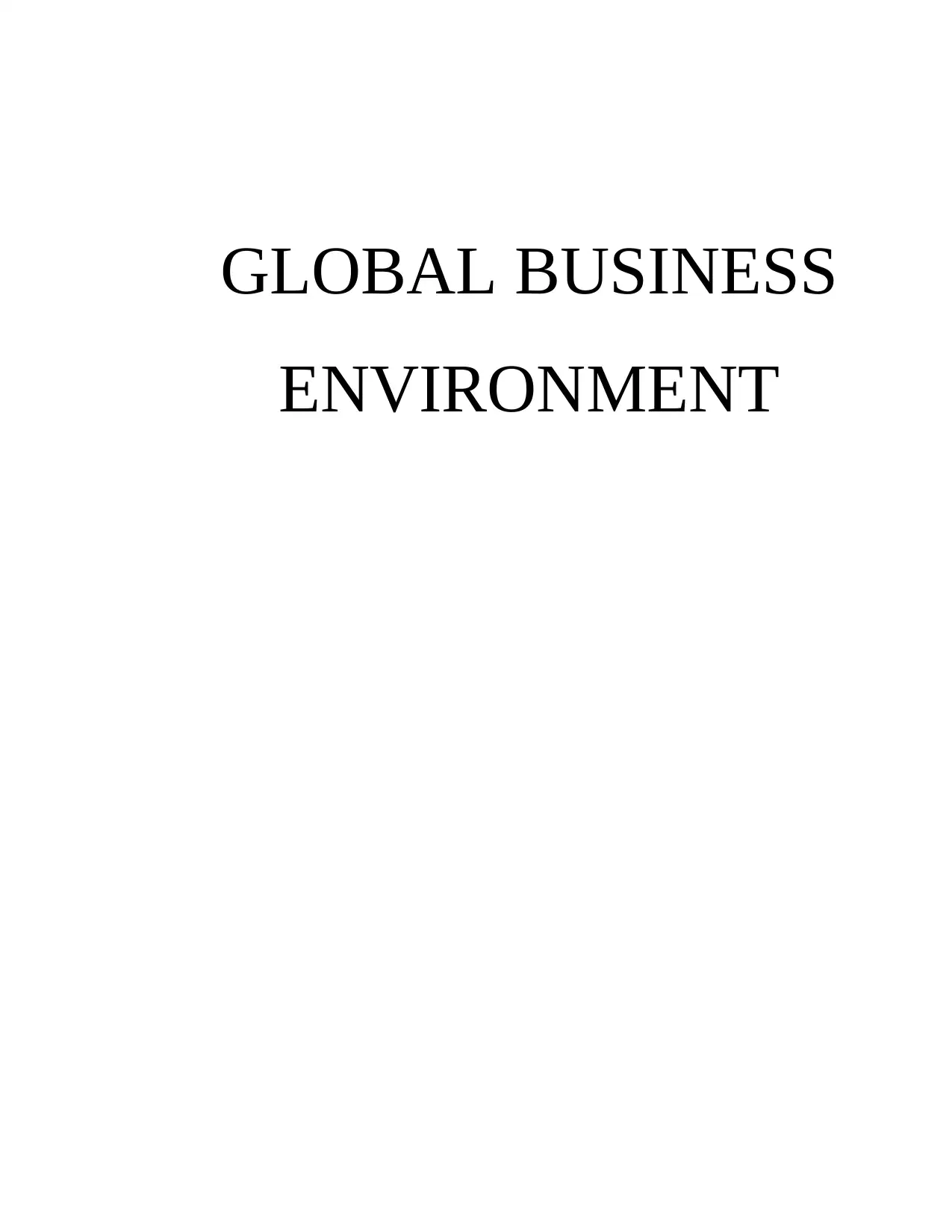
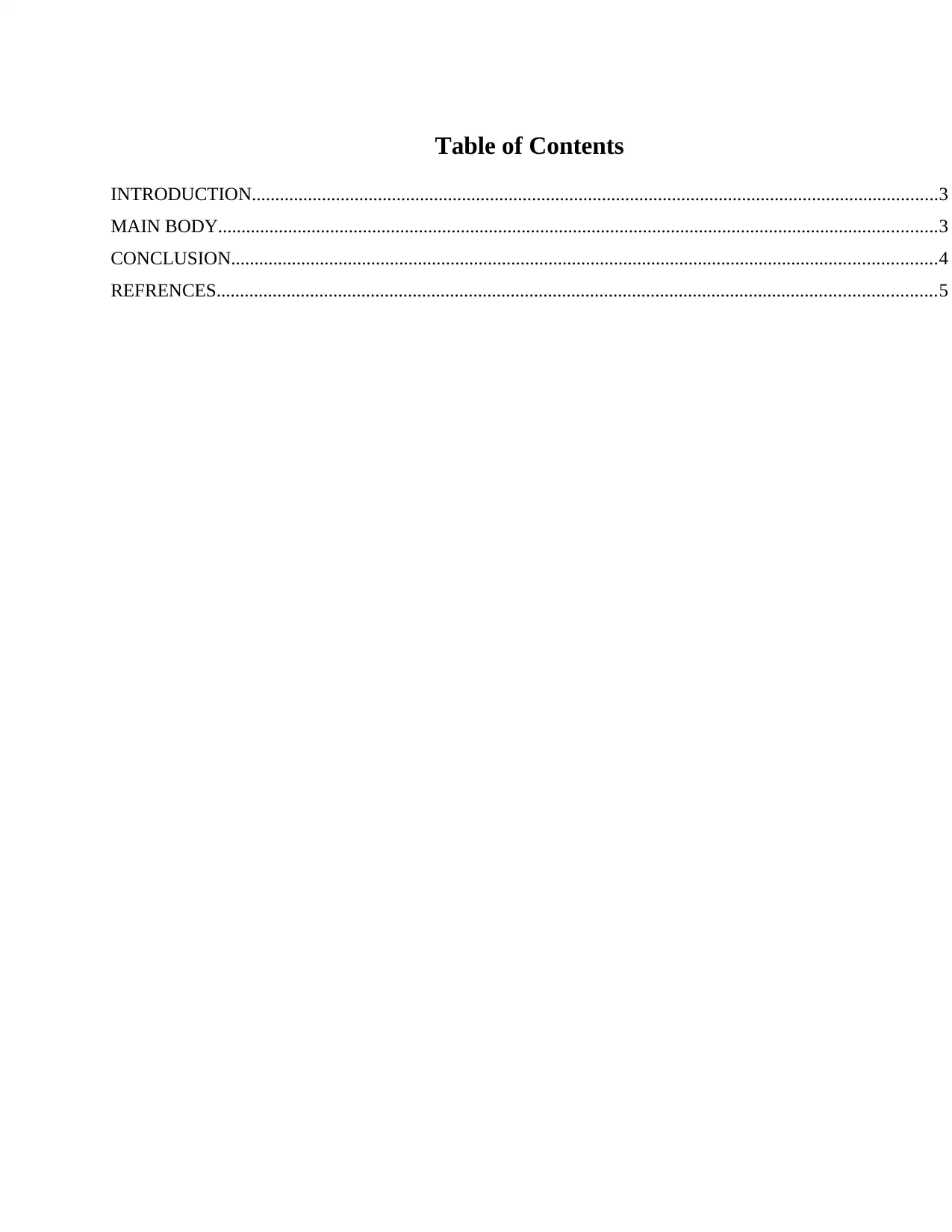
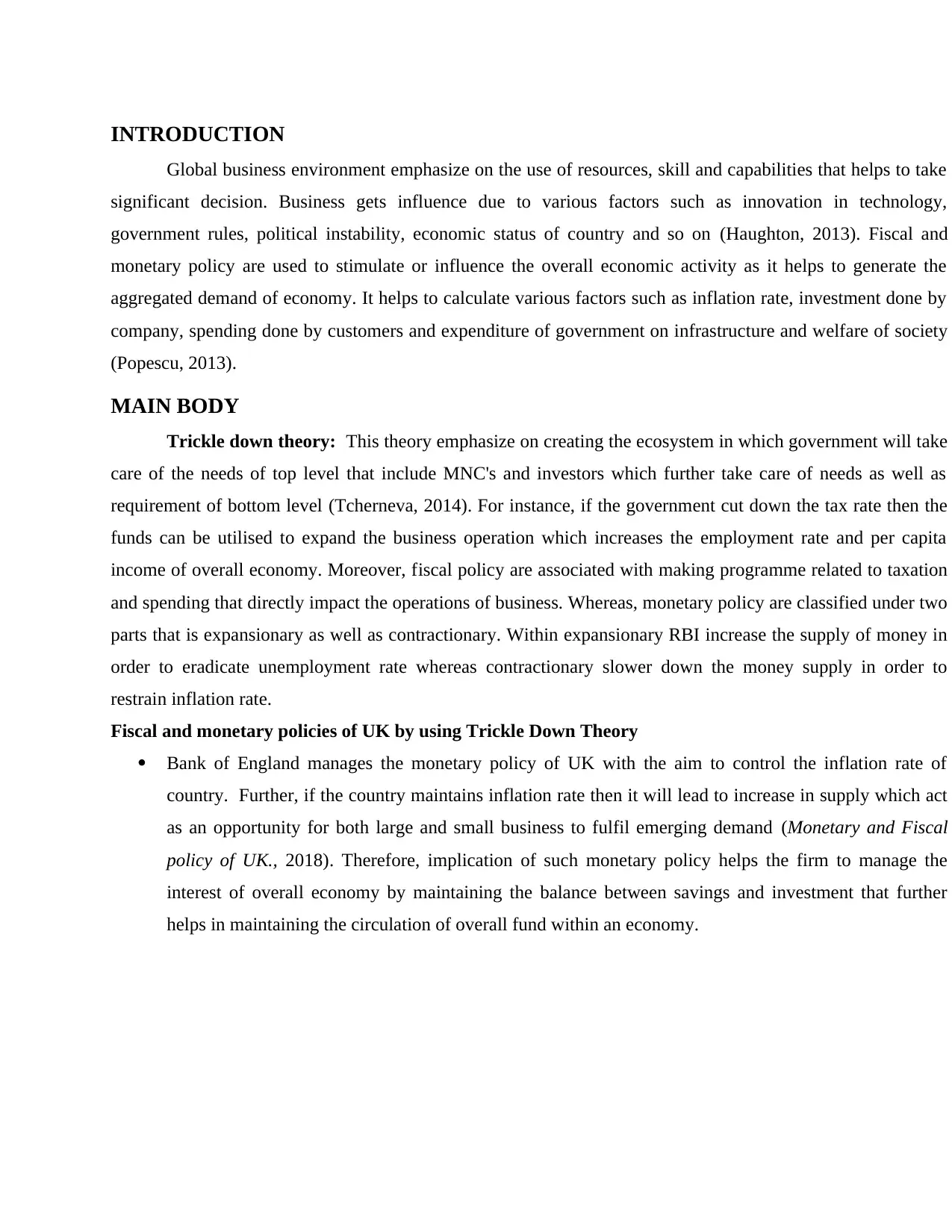

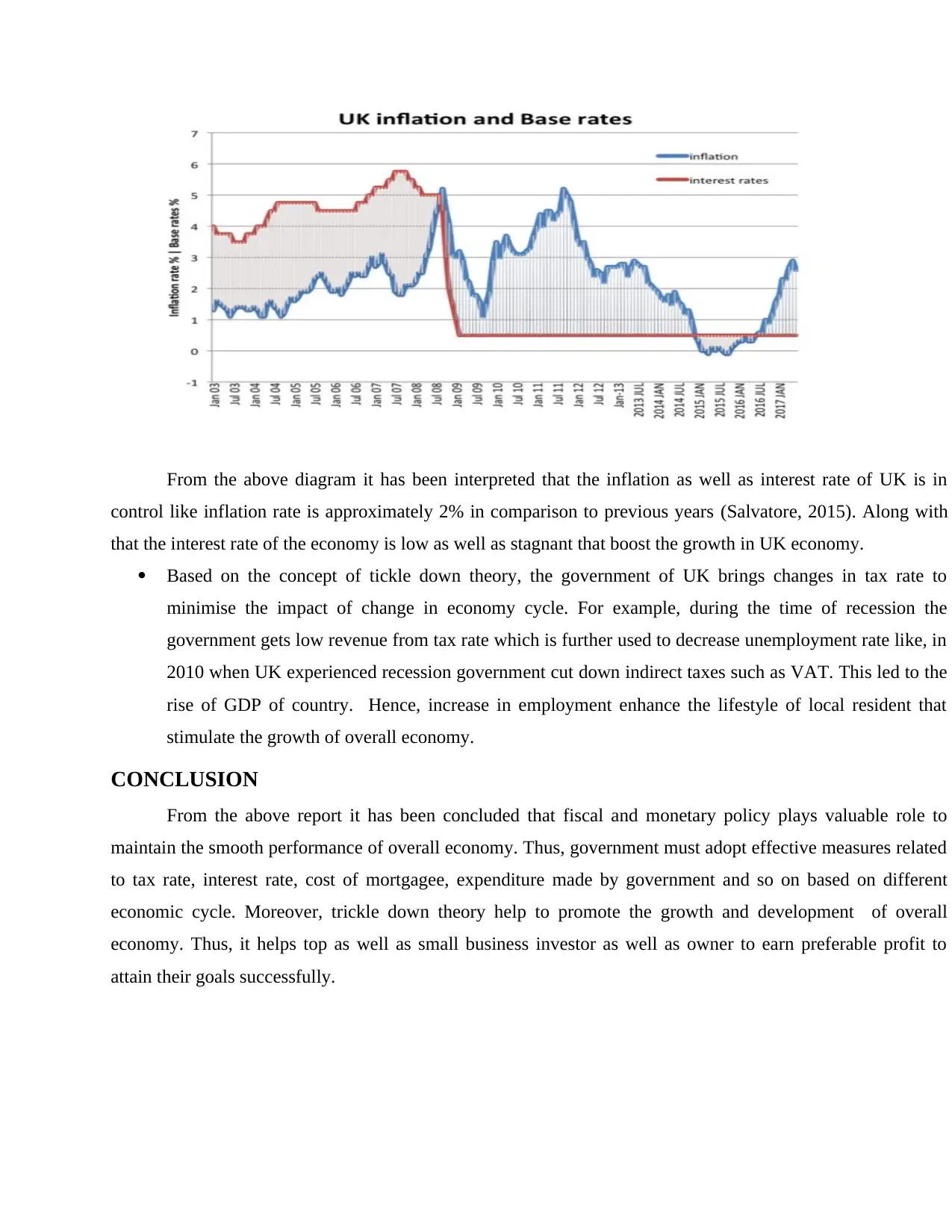
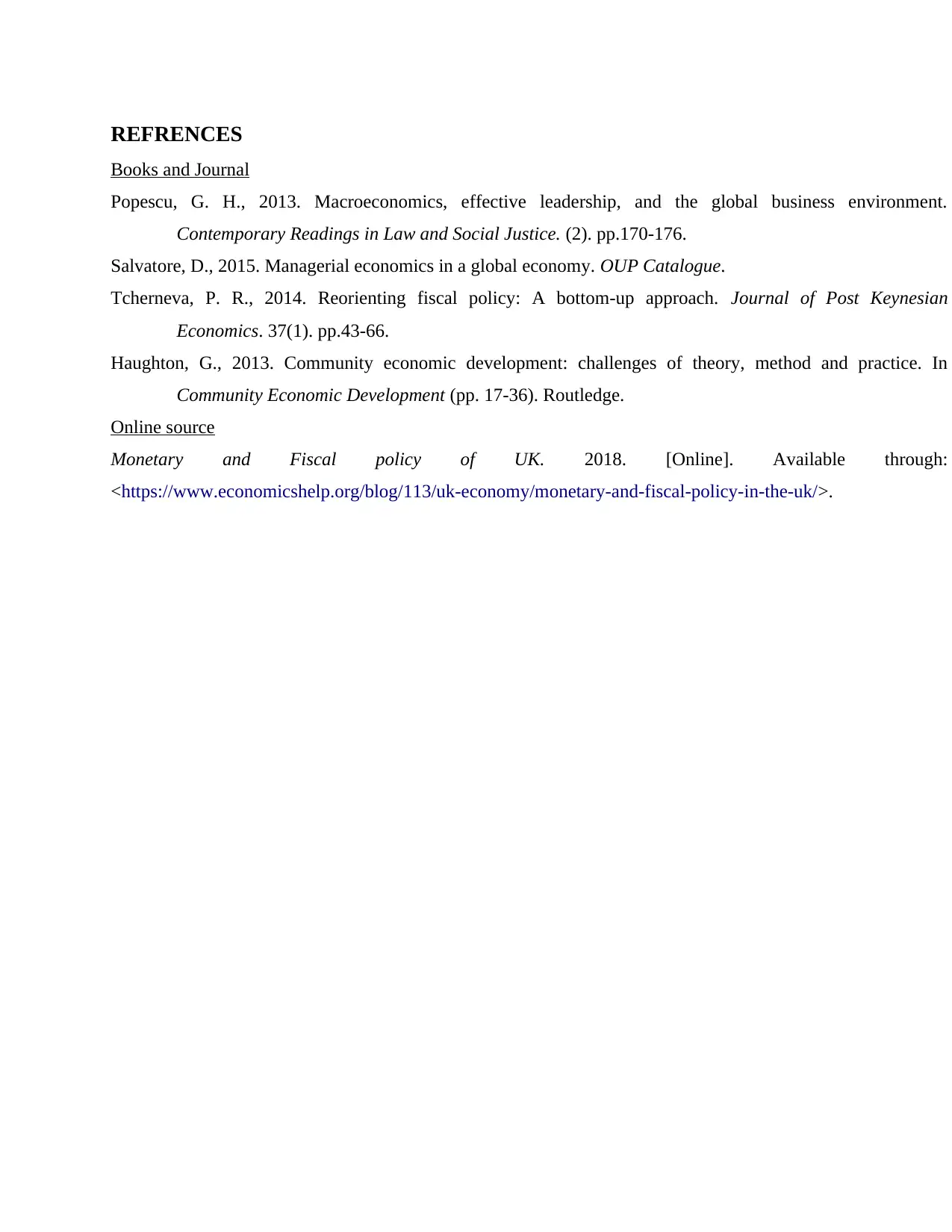






![[object Object]](/_next/static/media/star-bottom.7253800d.svg)